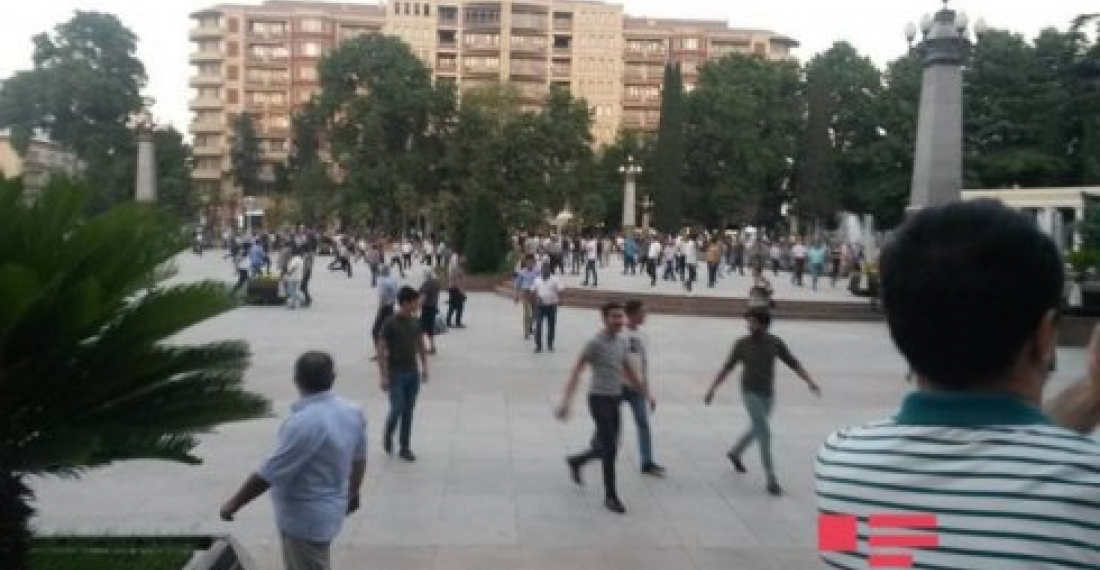Напряженность сохраняется во втором городе Азербайджана, Гяндже, после инцидента, произошедшего прошлым вечером (10 июля), в ходе которого сотни протестующих столкнулись с полицией перед зданием правительства в центре города. В ходе столкновений были убиты двое полицейских и арестовано сорок протестующих. Протесты последовали за инцидентом на прошлой неделе, когда местный житель попытался убить главного представителя правительства в городе Эльмара Велиева.
Вчерашние инциденты начались, когда группа из примерно 200 протестующих собралась в центре города, предположительно вооруженная ножами и острыми предметами, и призвала освободить человека, который находится в заключении, по обвинению в покушении на убийство Эльмара Велиева. Полиция и войска МВД отреагировали быстро и разогнали протест. Сцены протеста транслировались в прямом эфире в социальных сетях некоторыми местными жителями. Позже выяснилось, что во время столкновений были убиты два полковника полиции. Власти говорят, что двум людям, подозреваемым в убийствах, удалось бежать. Они опубликовали фотографии и подробности двух мужчин и попросили общественность получить информацию о их местонахождении. Главные оппозиционные партии в Азербайджане - партии «Мусават» и Народный фронт, дистанцировались от протестов, по данным азербайджанской службы Би-би-си, которые взяли интервью у некоторых из их лидеров.
По словам политического редактора Commonspace.eu, "инциденты в Гяндже представляют собой серьезный вызов правительству президента Ильхама Алиева. Протестующие, похоже, религиозно вдохновлены, и у них есть поддержка в обществе. Гянджа традиционно является оплотом шиитов, основная религиозная традиция в Азербайджане, однако признаки религиозного радикализма в Гяндже до сих пор находятся под поверхностью. Правительство должно действовать осторожно, чтобы не спровоцировать реакцию в обществе. Но убийство двух полицейских в центре второго по величине города является серьезным препятствием для правительства. Инциденты в Гяндже также должны рассматриваться в более широком политическом контексте страны. Правительство сократило пространство для критики или политической активности, но Азербайджан остается свободной страной с гражданами, имеющими доступ к большинству социальных сетей. В настоящий момент правительство сражается на трех фронтах - внутренне оно пытается очистить наиболее острые случаи коррупции в своих рядах, что она с опозданием признала серьезным препятствием для ее работы; правительство находится в прямом противостоянии со светской оппозицией, обвиняющей ее в тоталитаризме и злоупотреблении властью; и правительство находится в конфронтации с радикальными религиозными группами, которые питают отвращение к светскому характеру азербайджанского руководства. Как показали события в Гяндже в последние дни, последняя задача может оказаться самой сложной".
источник: commonspace.eu
фото: Фото протестов в Гяндже, 10 июля 2018 года (фото предоставлено информационным агентством АПА, Баку).







